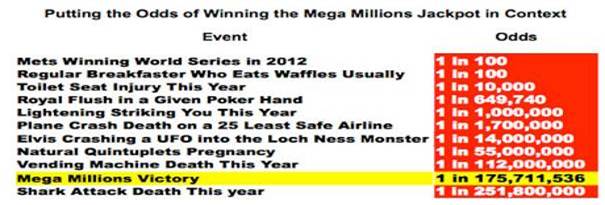ÌâÄ¿ÄÚÈÝ
There once lived a rich businessman who had a lazy son. The businessman wanted his son to realize the value of labour and said: ¡°Today, I want you to go out and earn something, failing which you won¡¯t have your meals tonight.¡±
He went crying straight to his mother. Her heart melted at her son¡¯s eyes. She gave him a gold coin. When the father asked his son what he had earned, the son presented him the gold coin. The father asked him to throw it into a well.
The next day, he asked his son to earn something. This time he went crying to his sister who gave him a coin. When he showed it to his father he again asked him to throw it in a well. Then the father asked him to earn more money.
This time since there was no one to help him, the son was forced to go to the market. One shopkeeper told him he would pay him two coins if he carried his trunk to his house. He did so and sweated plenty. As he returned home he was asked to do the same. The son almost cried out. He could not imagine throwing his hard-earned money like this. He cried, ¡°My entire body is aching. You are asking me to throw the money into the well.¡±
At this moment, the businessman told him one feels the pain only when the fruits of hard labour are wasted. On the earlier two occasions he was helped and therefore had no pain in throwing the coins into the well. The son had now realized the value of hard work. He promised never to be lazy and to safely keep the father¡¯s wealth. The father handed over the keys of his shop to the son and promised to guide him through the rest of the life.
СÌâ1:Which of the following is TRUE?
| A£®At first the son was hard-working and responsible. |
| B£®The father taught his son a lesson in a good way. |
| C£®The father didn¡¯t like his son at all. |
| D£®The businessman was a little lazy. |
| A£®the importance of helping others |
| B£®the importance of money |
| C£®the value of hard labour |
| D£®the value of money |
| A£®the mother was very generous |
| B£®the sister was very warm-hearted |
| C£®the father was very strict |
| D£®the shopkeeper was very cruel |
| A£®look for a good job |
| B£®use up his father¡¯s wealth |
| C£®become a successful guide |
| D£®follow his father¡¯s career |
СÌâ1:B
СÌâ2:C
СÌâ3:C
СÌâ4:D
ÎÄÕ½²ÊöµÄÒ»¸ö¸¸Ç×ΪÁ˽ÌÓýËûÀÁ¶èµÄ¶ù×Ó£¬Èöù×Óȥ׬Ǯ£¬°ÑµÃµ½µÄÇ®ÈÔµ½¾®ÀïÃ棬ͨ¹ýÕâ¼þÊÂÇ飬¶ù×ÓÒâʶµ½Í¨¹ýÐÁ¿à׬À´µÄÇ®ÊǺÜÕä¹óµÄ£¬´Ó¶ø¸Ä±äÁËÕâ¸öÀÁ¶èµÄ벡¡£
СÌâ1:¸ù¾ÝÎÄÕ´óÒâ¿ÉÖª£¬¸¸Ç×ÈÃËûµÄ¶ù×Óͨ¹ý׬Ǯ£¬µÃµ½ÁËÒ»¸ö½Ìѵ¡£
СÌâ2:ÊÂʵϸ½ÚÌ⣬¸ù¾ÝµÚÒ»¶ÎThe businessman wanted his son to realize the value of labour¿ÉÖª¡£
СÌâ3:ÍÆÀíÅжÏÌ⣬ÒòΪ¸¸Ç×ÿ´Î¶¼Èöù×Ӱѽð±ÒÈÓµ½¾®ÀÑϸñÒªÇóËûҪͨ¹ý×Ô¼ºµÄŬÁ¦×¬È¡£¬¿ÉÖª£¬Ëû¸¸Ç׺ÜÑϸñ¡£
СÌâ4:¸ù¾Ý×îºóÒ»¶ÎµÄThe father handed over the keys of his shop to the son and promised to guide him through the rest of the life¿ÉÖª£¬¸¸Ç×°ÑËûµÄÉúÒâ½»¸øÁ˶ù×Ó£¬ËùÒÔ¶ù×Ó»á¼Ì³Ð¸¸Ç×µÄÉúÒâ¡£
СÌâ1:¸ù¾ÝÎÄÕ´óÒâ¿ÉÖª£¬¸¸Ç×ÈÃËûµÄ¶ù×Óͨ¹ý׬Ǯ£¬µÃµ½ÁËÒ»¸ö½Ìѵ¡£
СÌâ2:ÊÂʵϸ½ÚÌ⣬¸ù¾ÝµÚÒ»¶ÎThe businessman wanted his son to realize the value of labour¿ÉÖª¡£
СÌâ3:ÍÆÀíÅжÏÌ⣬ÒòΪ¸¸Ç×ÿ´Î¶¼Èöù×Ӱѽð±ÒÈÓµ½¾®ÀÑϸñÒªÇóËûҪͨ¹ý×Ô¼ºµÄŬÁ¦×¬È¡£¬¿ÉÖª£¬Ëû¸¸Ç׺ÜÑϸñ¡£
СÌâ4:¸ù¾Ý×îºóÒ»¶ÎµÄThe father handed over the keys of his shop to the son and promised to guide him through the rest of the life¿ÉÖª£¬¸¸Ç×°ÑËûµÄÉúÒâ½»¸øÁ˶ù×Ó£¬ËùÒÔ¶ù×Ó»á¼Ì³Ð¸¸Ç×µÄÉúÒâ¡£

Á·Ï°²áϵÁдð°¸
Ïà¹ØÌâÄ¿
